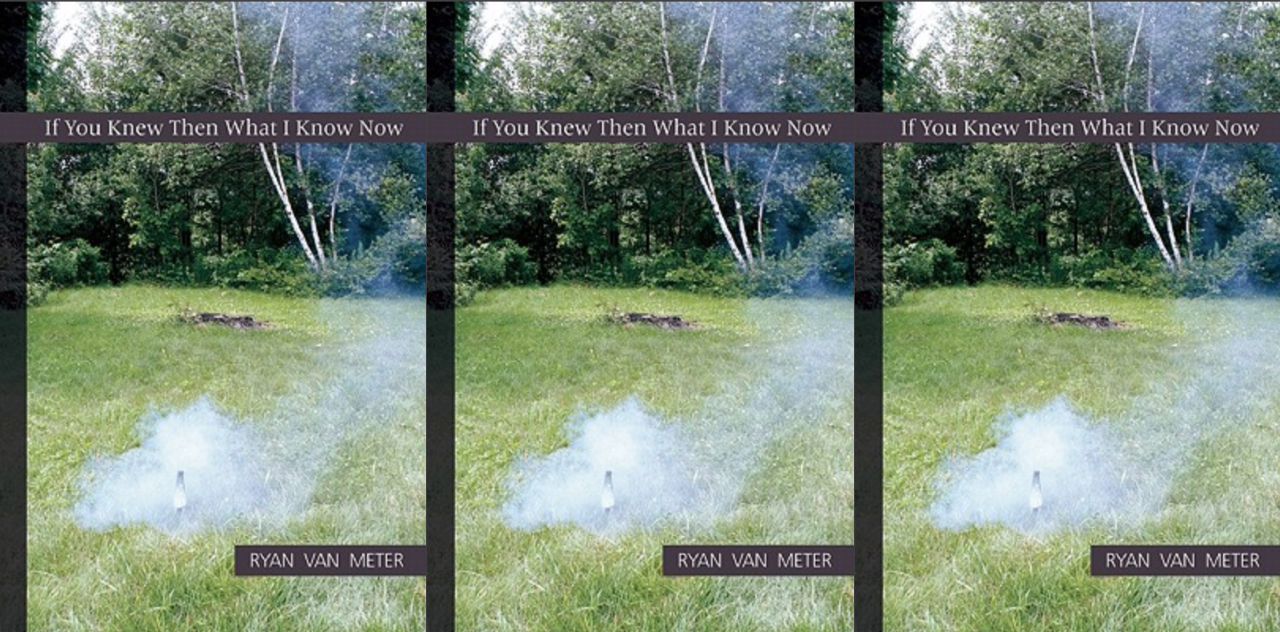If You Knew Then What I Know Now

If You Knew Then What I Know Now
Ryan Van Meter
Sarabande Books, April 2011
176 pages
$15.95
In “First,” the opening essay of Ryan Van Meter’s autobiographical collection, Van Meter’s five-year-old self tells his best friend Ben that he loves him. When Ben responds the same way, Van Meter takes the next leap and asks Ben to marry him, an innocence and purity of emotion quickly soiled by parental criticism: “Boys don’t marry other boys.” That same pathos and heartbreak carry through the fourteen pieces of this intimate debut.
A quiet exploration of self-identity stretched over three decades, If You Knew Then What I Know Now charts Van Meter’s passage into early adulthood where, in a small-town Midwestern setting, even tiny blunders in conformity magnify his sense of otherness. Growing up, Van Meter never quite fit in: too slight, too effeminate, uninterested in sports, and not attracted to the skin mags his classmates passed around.
Van Meter skillfully expresses the minutiae children observe about the adult world, even if much of that learned behavior comes without knowing why. In “Discovery,” he observes, “beautiful women touch their faces a lot when they want to be noticed.” During the father-son fishing trip in “Lake Effect,” Van Meter’s father chastises him for staring at a man’s naked chest. Van Meter notes that the other fathers “knew what kind of boy acted the way I did. What they wanted to find out was what kind of a man my father was.”
In the collection’s latter half, Van Meter writes movingly about his first significant relationship after he’s come out, and the nature of love between two men. Messing around with his boyfriend in “You Can’t Turn Off the Snake Light,” he’s asked to “say something dirty.” What drops from his mouth instead is, “I love you.” When he tries to recall his first image of two men in love, all he remembers are seeing gay men dying of AIDS on the evening news. In an essay on the word “faggot,” Van Meter details how insidious language is. In his attempts to demystify the etymology of the word, he learns that the 16th century usage was as pejorative slang for women. A few paragraphs later, Van Meter states, “I have only ever been called ‘faggot’ by men, never by women.
The occasional bad line (“my heart knocking like an angry landlord”) is far outweighed by Van Meter’s manner of narrating his life: he molds his burdens into stories, opens his cupped hands, and lets them go—so well you almost forget they’re true.
Lacey N. Dunham has written for Used Furniture Review, The Collagist, The Feminist Review and Altar Magazine, among others, and is editor at THIS Literary Magazine. She studied writing at Hollins University and recently moved from Washington, DC to Minneapolis, MN. You can follow her on Twitter @bookbent.



